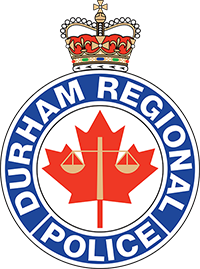What is Human Trafficking?
Human Trafficking is a criminal process whereby individuals seek to secure economic advantage through the exploitation of others. Usually involving the forced provision of unpaid (or underpaid) labour services without the free consent of the laborer/victim. Human Trafficking includes many conditions or circumstances, such as: slavery, debt bondages/indentured labour, forced labour exploitation, domestic servitude and commercial sexual exploitation. It often involves the selling of another person's body or labour.
Sex Trafficking means recruiting, transporting, transferring, holding, concealing, or harbouring a person, or exercising control, direction or influences over the movement of a person, for the purpose of sexually exploiting them or facilitating their sexual exploitation.
Warning Signs
- Person is not allowed to speak for themselves and their activities are controlled by someone else.
- Person is always being moved, usually from hotel to hotel.
- Drug use/dependence.
- Tattoos or scarring may be an indication of branding by trafficker. (Traffickers initials or names)
- Unable to access their own money or other resources. Some victims have a sudden increase in money available to them.
- Signs of physical abuse, fear, shame and guilt.
- Distrust for persons of authority. (Law enforcement etc.)
- New clothes / jewelry / electronics (phones, iPads).
Note: There are many signs to watch for that indicate someone may be a victim of Human Trafficking. However the signs do not confirm a person is involved in prostitution or forced labour.
Stages of Sex Trafficking
Recruitment and Grooming Stage
Sex traffickers typically seek out vulnerable individuals. Traffickers utilize various tactics to manipulate and install varying degrees of violence & fear. Traffickers may offer or force victim to use drugs and or alcohol. Traffickers begin to provide all the basic and essential need to the victims. Traffickers build a relationship with the victim where the victim truly believes they are in a romantic relationship with their traffickers. Victims may refer to their traffickers as their partner (i.e. boyfriend etc.)
Segregation Stage
Sex trafficker begins to remove the victim from their social support and family ties. The victim may be moved to different locations or being to be distant from family and friends.
Control Stage
During this stage traffickers have the victim work in the sex trade including; strip clubs, massage parlours or brothels, providing escort services online or performing sexual services on the street. During this stage the trafficker mentors and directs the victim to conduct specific acts and meet certain demands. Victims may receive a daily minimum amount of money in order to avoid consequences (i.e. physical abuse, deprivation or food, drug of choice, even sexual abuse).
Isolation stage
Is the stage the trafficker enforces the rules that govern the victim. At this stage the victim would have likely experienced some form of emotional, physical, or sexual violence. The abuse will become the norm if the victim is not earning enough money or disobeys the trafficker. This cycle of violence leaves the victim feeling helpless and under the traffickers control.
Who's at Risk?
Those who are likely to be at-risk include persons who are socially or economically disadvantaged. According to Government/Public Safety of Canada Statistics certain populations are noted to be at an increased risk of victimization including: Women, youth and children, newcomers to Canada, teenaged runways, children and youth in the care of CAS, Indigenous woman and youth, as well as girls and women who may be lured to large urban centers or who move or migrate voluntarily to those areas.
Factors most often mentioned in research that are most associated with risk of victimization for human trafficking include, but are not limited to:
